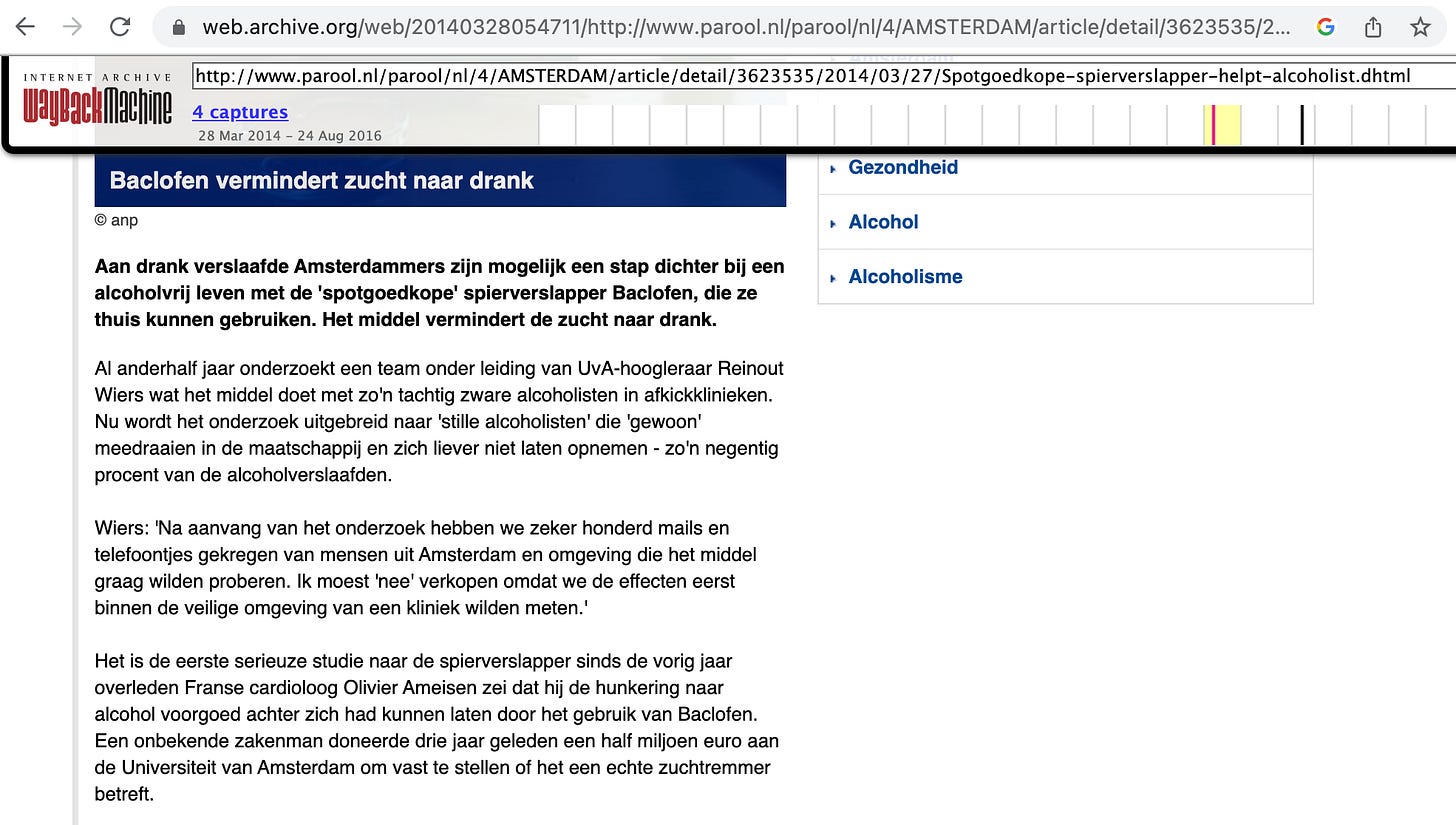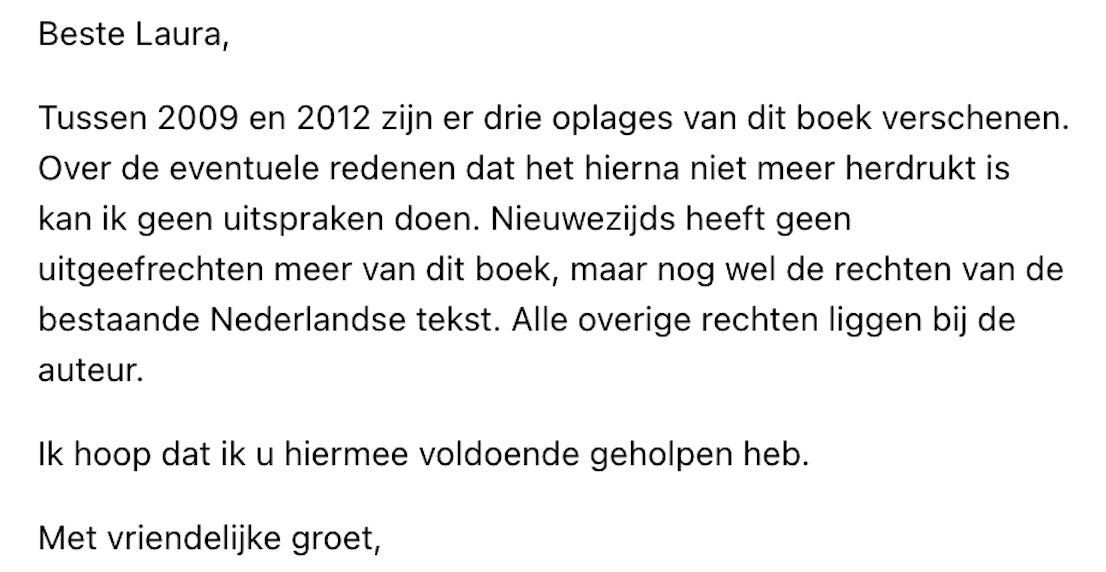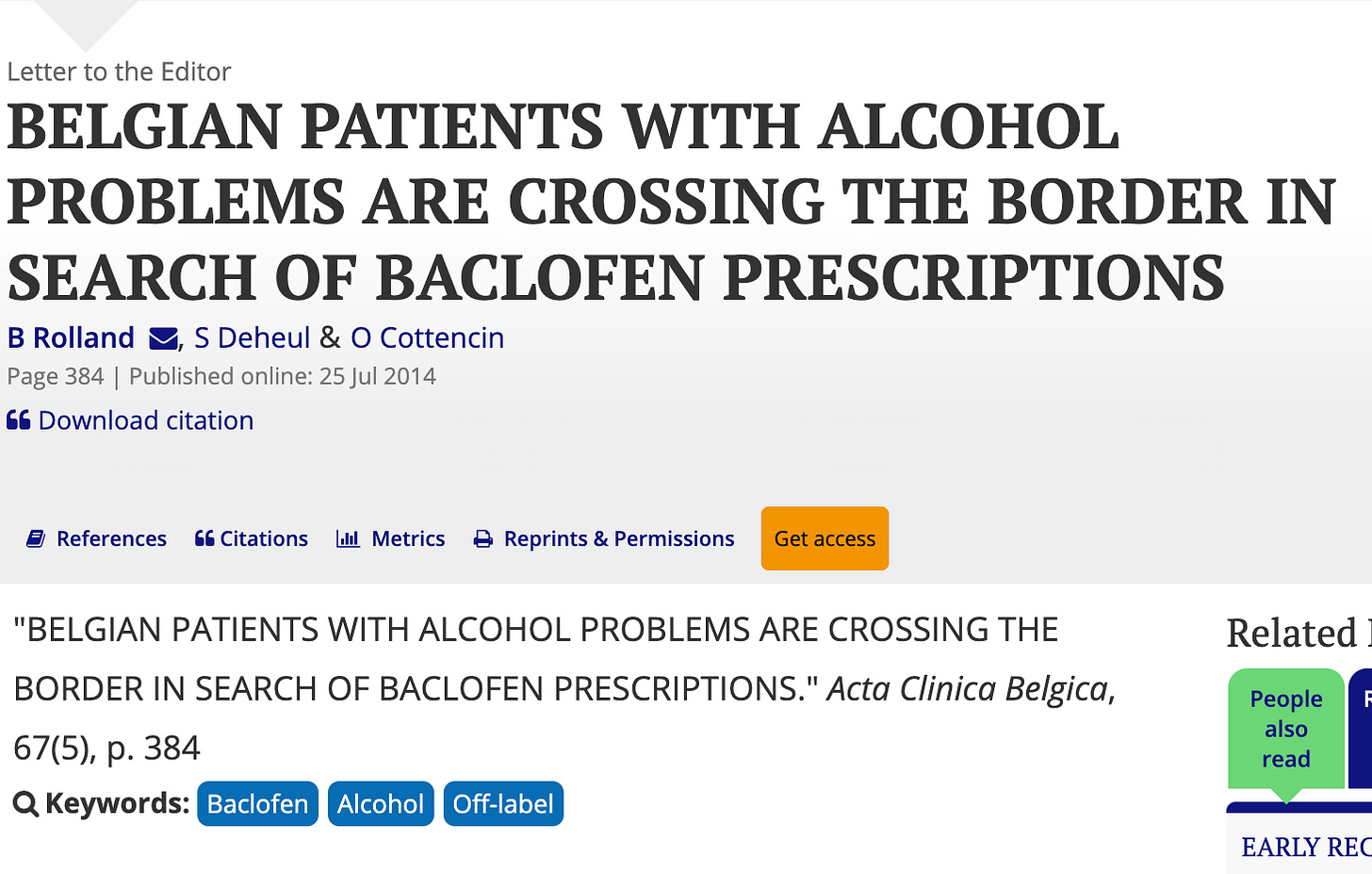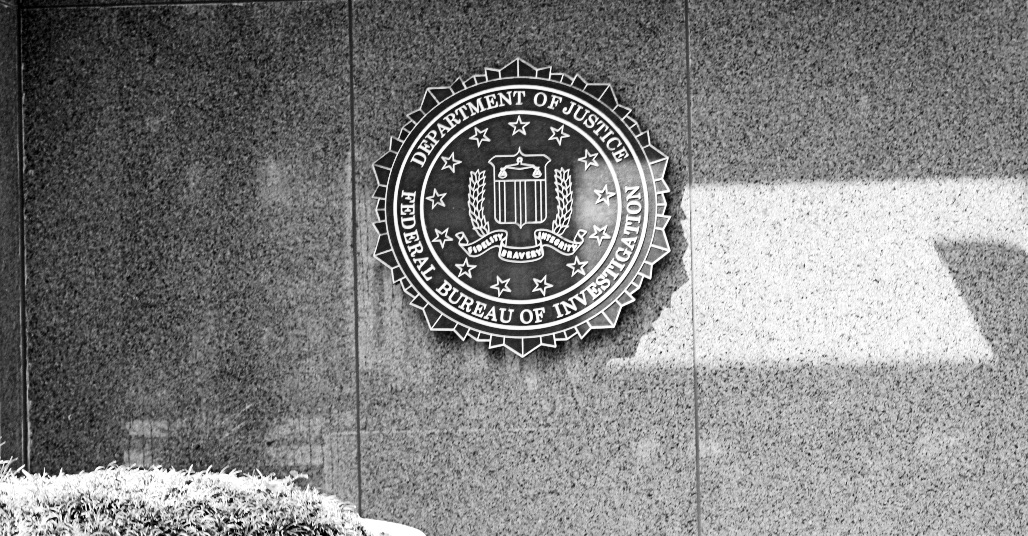The strange disappearance of books and articles on baclofen
“Drinking heavily, you abandon people–and they abandon you–and you abandon yourself–It’s a form of partial murder but too sad to go all the way.”
Jack Kerouac, Some of the Dharma, 1956
Around the time I was born, my 25-year-old father was most likely already addicted to alcohol, and I’ve spent a big part of my life taking care of him until he died at age 58. He was my best friend. He had the strongest will to live. He had the strongest will to quit drinking. But he couldn’t quit. In Dutch, ‘addiction’ means ‘verslaving’, ‘enslavement’. Addiction is enslavement in a multidimensional trap.
Earlier this year a friend lend me a copy of the book The End of My Addiction by Olivier Ameisen, a renowned French-American cardiologist and a brilliant pianist who cured his alcohol addiction by experimenting with a cheap, off-label medication that is used as a painkiller for MS patients: baclofen. My friend cured his own addiction with the help of the information in Ameisen’s book. Today, this book is no longer available anywhere. Moreover, many online articles on baclofen have disappeared and truth became increasingly buried under a pile of mysteries.
Ameisen’s book, a memoir, was published in 2008 and pretty soon afterwards there was a French, German and a Dutch version. After three years and three reprints, the Dutch printing stopped around 2012, and the overall publishing rights were inexplicably pulled:
The publisher says here: “I can not make any statements on the potential reasons why this book has not been reprinted since.” They say “all remaining rights are with the author” while Ameisen died in 2013. Aside from the Dutch publishing contract of this bestseller, the German and French rights were also silently annulled. The German publisher removed two webpages, one on the book itself and one with their statement on Ameisen’s death in 2013. It is unclear who holds Ameisen’s copyrights and who ordered the cancellation of all international contracts. Knowing the world of publishing contracts well, I know this must have been a costly undertaking, not to mention the forfeiting of all future royalties.
Between 2008 and 2013, the book was an international bestseller. Many addicts started asking for baclofen. In Amsterdam, an anonymous businessman funded a ‘scientific’ study, seemingly only to undermine the value and impact of baclofen:

News articles like the one above in the Amsterdam newspaper Het Parool have been removed from the internet. Most information online today on baclofen has disclaimers with arguments that are not truthful or lack important context. In short, positive news on baclofen has very often been deleted while information critical of baclofen remained online. The Amsterdam study was, perhaps purposefully, conducted with very low doses, which goes against the specific experience of Olivier Ameisen as he described in his book.
Another consequence of the Amsterdam study was that baclofen can not be prescribed for addiction in The Netherlands and many other countries, which in turn lead to tragic circumstances: patients searching across borders.
A long story short, could the failing addiction industry, with huge profits raked in by treatment centers and drug manufacturers, be intimidated by a simple, low-risk and cheap potential cure for addiction? Ameisen described his experiences with the addiction industry in great detail. How he was treated was scandalous and inhumane.
The removal of so many online articles, the removal of printed books worldwide and the twisting of medical information supported by questionable scientific studies sure raise tons of questions.
Note: This is only a short summary of this story. If you’d like to know more about this topic, do not hesitate to send me a message.





